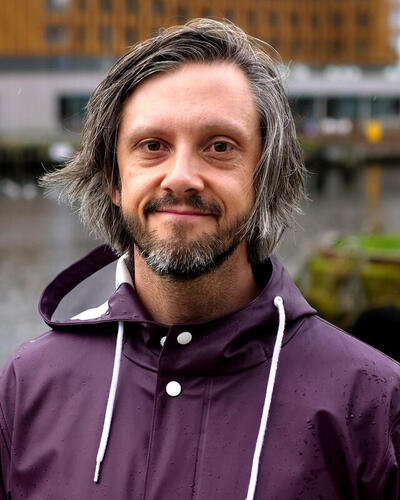Department seminars
Department of Informatics, seminar series
Main content
November 30, 13:00
Example-Driven Interactive Specification of Database Queries (Balder ten Cate, University of Amsterdam)
Examples can be a useful tool when a formal specification must be synthesized or communicated. They sometimes provide a more convenient medium for communication than the formal specification itself. We all know this from daily life: think about teaching someone a card game. Simply reading out loud the rules of the game is not an effective way of doing this. Instead, what works best in practice is to give examples of valid and invalid game plays.
In data management, data examples have been proposed and used in the context of schema design and the interactive specification of schema mappings, as well as database query synthesis, refinement and debugging.
In the talk, we will discuss some of these use cases, and we will discuss some fundamental algorithmic problems, focusing on the specific case of conjunctive queries (CQs, or equivalently, existential-conjunctive first-order formulas). These fundamental problems include: generating a small set of "good" data examples that showcase the behavior of a query; and, conversely, constructing, from a given set of data examples, a “good” fitting CQ. We will discuss solutions to these problems that draw on techniques from the literature on computational learning theory, combinatorial graph theory and the study of constraint satisfaction problems.
Upcoming talks
Past talks
2023
November 16, 13:00
National Prior Knowledge Test in Programming (Sondre Bolland, PhD student)
National Prior Knowledge Test in Programming - How proficient are incoming higher education students?
The implementation of Kunnskapsløftet 2020 (LK20) has made programming a mandatory part of the curriculum within mathematics subjects in secondary school. Three years later, the first cohort of students with this programming experience entered higher education institutions. This existing programming competence can have significant implications for the teaching of ICT subjects at universities and colleges. If students already possess a solid understanding of basic programming elements, instruction can be intensified and reach a more advanced level as early as the first semester. However, it is necessary to investigate whether this is the case. There has been substantial variation in the quality of programming education during the implementation of LK20. Teachers' knowledge of programming varies greatly, with some having computer science didactics as part of their education while others have never coded before. Therefore, it is important to assess the extent and comprehensiveness of students' prior knowledge.
The National Prior Knowledge Test in Programming is a tool for evaluating students' programming skills. This test covers the fundamental elements of introductory programming that are taught at various universities and colleges in Norway. The first iteration of the test was administered in August 2023, with 2133 participants at seven different higher education institutions in Norway, and the results were surprisingly positive.
November 2, 13:00
AI, Misinformation, and Covid 19 Conspiracy Theories (Johannes Langguth, Simula & Associate professor II at Dept. Informatics)
We present a holistic approach on detecting and tracing Covid-19 related conspiracy theories in online social media, discussing both the AI tools and the data sets used for this purpose. We show how different narratives evolve over time, and investigate the forces driving individual narratives. We then discuss the topic as well as commonly believed misconceptions in the wider context of the misinformation landscape today.
October 19, 13:00
Channel Capacity and Integrated Sensing and Communication (Michèle Wigger, Telecom Paris, France)
We will provide an introduction to Shannon's famous channel and source coding theorems and show modern applications thereof for integrated sensing and communication (ISAC) systems.
ISAC systems are expected to be important building blocks of future 6G standards as they merge radar and communication into single systems with reduced hardware costs and bandwidth requirements. In this talk we shall present Kobayashi et al.'s capacity-distortion tradeoffs for single-transmitter and single-receiver ISAC systems and also discuss our extensions to multiple transmitters or multiple receivers. Specifically, for multiple receivers, we identify interesting tradeoffs between the various achievable rates and distortions. For multiple transmitters we present the first information-theoretic coding scheme that integrates collaborative sensing and collaborative communication into a single code construction and we show that our construction achieves improved performances compared to previous schemes.
October 12, 13:00
A Journey in Technology Transfer - Developing a Verification Tool for Railway Interlockings (Markus Roggenbach, Swansea University, UK)
In this talk, we will reflect upon a journey in technology transfer. This journey began with a request from industry to produce a method for software quality control. This request had two motivations: one was improving software quality, the other was to reduce a costly testing effort in software production.
Up to now, this journey went through three phases. First, we were exploring foundations, ensuring a semantically sound approach. Then, we were building an academic prototype, exploring how far things could be automated. Lately, we finished implementing an industrial prototype, adhering to industrial software engineering standards, utilizing bespoke industrial data formats, providing a decent user interface. Currently, we are about to investigate how effective our tool is compared to traditional approaches, and the costs and benefits of introducing our method in standard software production.
Overall, our journey turned out to be a far longer one than expected. Originally, perhaps as naive academics, we thought that the 1st prototype would be the end. When the decision came to build the 2nd prototype, we thought that this would then be the end. Having now implemented the 2nd prototype, we understand that there is still further to go towards a fully deployed technology. Overall, the journey up to now (excluding natural periods of inactivity) has taken about eight years and allowed us to gain expertise on the process of technology transfer.
This journey was possible thanks to a long-standing collaboration between industry and academia. Though our endeavour continues, substantial progress has been made and there is honest belief by all involved that in the end there will be product ready for use.

